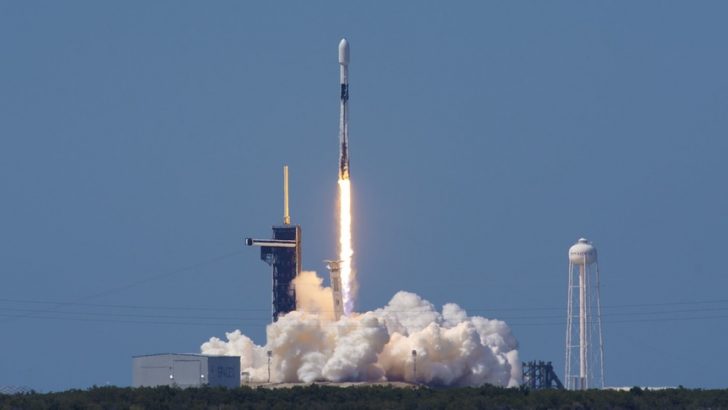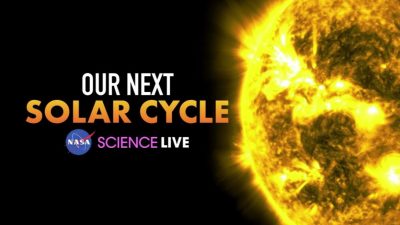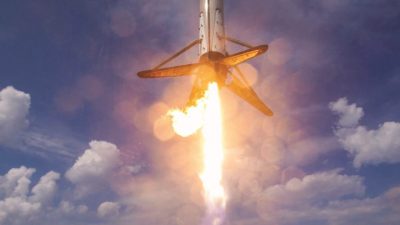Commercial launch industry off to slow start in 2020

Commercial launch industry off to slow start in 2020
WASHINGTON — The first half of 2020 has been sluggish for the commercial launch industry, but its problems can’t be explained solely by the coronavirus pandemic.
According to statistics compiled by SpaceNews, there were 45 orbital launch attempts in first six months of 2020, including four failed launches. That would put the overall launch industry on a pace for 90 launches in the year, somewhat less than the 102 launches attempted in 2019.
Of those 45 launches, just over half — 23 — were carried out or otherwise brokered by Western launch companies. That includes Arianespace, Mitsubishi Heavy Industries (MHI), Northrop Grumman, Rocket Lab, SpaceX, United Launch Alliance and Virgin Orbit. The rest were performed by Chinese organizations, the Russian government and Iran.
Most of those 23 launches, though, were not for commercial customers. Arianespace performed two Ariane 5 launches early in the year that carried either commercial communications satellites or government satellites whose launches were commercially competed. It also brokered two Soyuz launches of OneWeb satellites before OneWeb filed for Chapter 11 bankruptcy protection in March.
Other launch companies have relied on government or internal customers. MHI’s two H-2 launches have been for the Japanese government, one carrying a reconnaissance satellite and the other an HTV cargo spacecraft to the International Space Station. Northrop Grumman’s sole Antares launch was also an ISS cargo mission. ULA has performed three Atlas 5 launches, two carrying payloads for the U.S. military and the other the ESA/NASA Solar Orbiter spacecraft.

SpaceX has carried out 10 Falcon 9 launches so far this year, but seven of them have been of its own Starlink satellites, generating almost no revenue for the company. Credit: SpaceX
On the small launch vehicle market, Rocket Lab has carried out two Electron launches to date, with the National Reconnaissance Office the primary customer in both cases. Virgin Orbit’s first LauncherOne launch May 25, which failed to reach orbit, carried a demonstration payload only.
Among Western launch companies, SpaceX has been the most active, with 10 Falcon 9 launches so far. However, seven of those launches have been for the company’s own Starlink satellites, and did not generate any launch revenue beyond a small amount from carrying three SkySat secondary payloads for Planet on the most recent Starlink mission June 13. The other three launches were for U.S. government customers: an ISS cargo spacecraft, the Demo-2 commercial crew mission and the June 30 launch of a GPS 3 satellite for the U.S. Space Force.
The lack of commercial launches can be blamed in part on the pandemic. Some companies, like Arianespace and Rocket Lab, temporarily suspended launch operations because of government restrictions. A SpaceX launch of Argentina’s SAOCOM 1B satellite, which was commercially procured, was postponed this spring because of international travel restrictions.
The pandemic alone, though, is not responsible for the dearth of launches. “I think it would have been a rough year, no matter what,” said Janice Starzyk, vice president of commercial space at Bryce Space and Technology, in a July 1 interview.
That assessment is based on the sharp drop in orders for commercial geostationary orbit communications satellites in recent years. That decline in orders is showing up now as a lack of launches. “2020 was going to be a fairly slow year,” she said. “There just weren’t that many satellites ordered to launch this year.”
Starzyk said she did not expect an uptick in commercial launch activity in the rest of the year given that lack of orders. Another factor is OneWeb’s bankruptcy, which has halted what was to be a steady cadence of launches this year.
There are some signs of renewed commercial launch activity. Rocket Lab’s next Electron launch, scheduled for July 5, will carry a set of commercial satellites for Canon, Planet and In-Space Missions. Arianespace will resume Ariane 5 launches in late July with satellites for Intelsat and B-SAT, while a long-delayed Vega launch carrying dozens of smallsats is now scheduled for mid-August. SpaceX is expected to launch Anasis 2, a South Korean military satellite whose launch was commercially procured, in July as well.
Looking beyond 2020, there’s been an increase in commercial GEO satellite orders, including 10 C-band satellites ordered in recent weeks by Intelsat and SES as part of the FCC effort to clear satellite C-band spectrum for use by terrestrial 5G systems. While no launch contracts have been announced yet for those satellites, Starzyk said it’s likely Intelsat and SES have already arranged launches for them to ensure that the companies can meet the FCC’s deadlines for clearing that spectrum.
“It’s going to be a decent year” for the launch industry overall, she said. “It’s not going to be a great year, but it’s not going to be a horrible year.”
by Jeff Foust from spacenews.com






